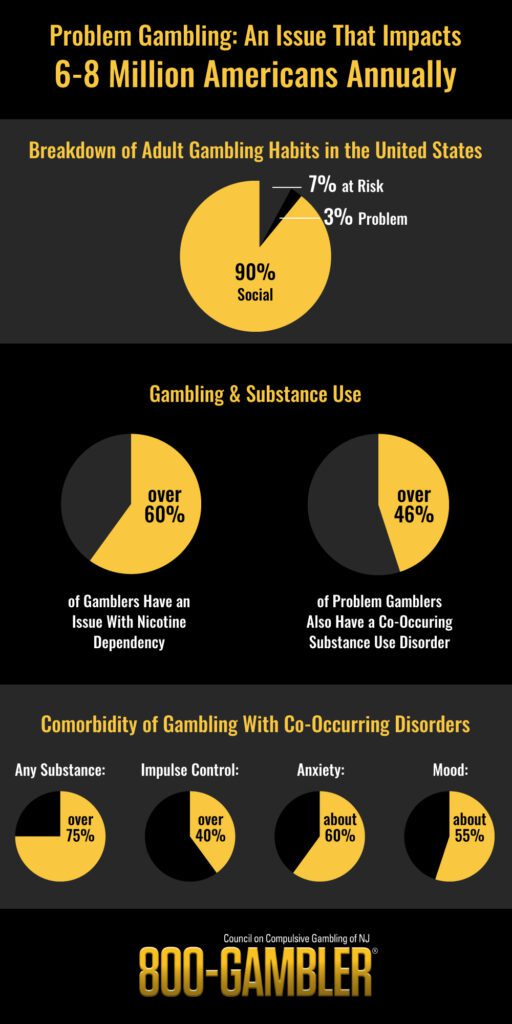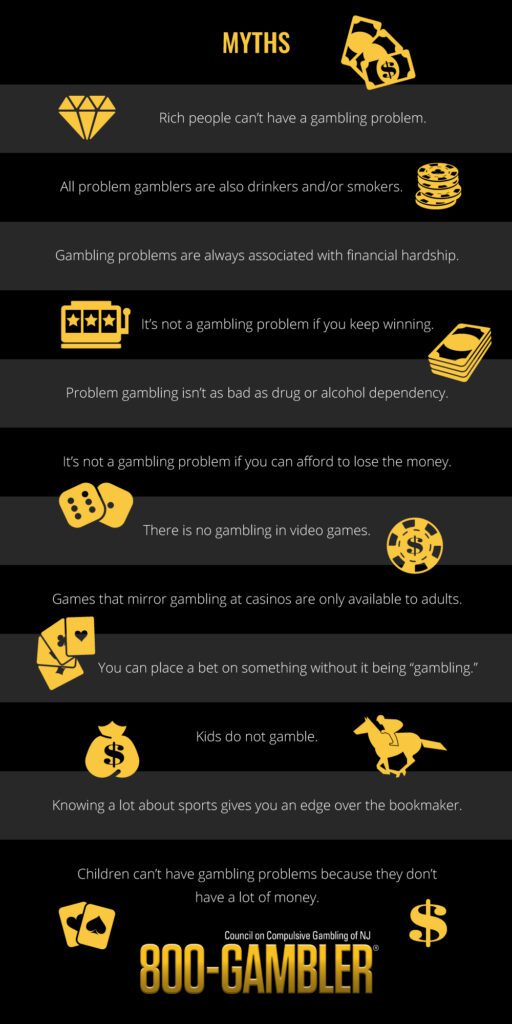In honor of National Problem Gambling Awareness Month kicking off in March, let’s take a minute to revisit some of the basic facts about problem gambling in modern society, including how prevalent it is, what the warning signs are, and co-occurring conditions that are often associated with disordered gambling.
Problem Gambling & American Society
Did you know that problem gambling impacts between 6 and 8 million Americans each year? There are three ways to classify gambling behavior — social gambling, “at risk” gambling, and problem gambling. About 90 percent of gambling is social gambling, meaning that it is not harmful or problematic for the person wagering or their loved ones. Roughly seven percent of Americans fall under the “at risk” category, meaning that they don’t necessarily have a gambling problem, but their behavior indicates that they are at risk of joining the three percent of Americans who meet the criteria for problem gambling. Problem gambling can cause serious issues for a family, and it is associated with other harmful behaviors such as substance misuse. It’s no wonder why problem gambling and divorce often go hand-in-hand in Freehold and other communities throughout New Jersey.

The Correlation Between Gambling & Substance Use
Did you know that more than 46 percent of problem gamblers also have a co-occurring substance use disorder involving drugs or alcohol? Additionally, more than 60 percent of gamblers have a nicotine dependence issue. These facts lend credibility to the notion that gambling is like a drug of sorts to certain people, making it difficult to quit despite the negative impact it has on an individual and their family. It is up for debate whether there is distinguishable causation to the correlation between substance use and problem gambling, but that’s beside the point — what this data shows is that, from a public health standpoint, problem gambling deserves just as much attention as substance abuse disorders. Whether people are developing gambling problems because of their drug problems or vice versa is irrelevant, as our main goal is to provide treatment to those who are seeking it, in addition to educating the general public of the resources that are available if and when they are needed. It’s clear that unhealthy habits often come in pairs or groups (called comorbidity), and that one form of harmful behavior can exacerbate another, creating a need for each issue to be addressed proportionately. But before you can address a gambling problem, you must know the warning signs to look out for. Are you aware of the signs of problem gambling and other mental health issues?
Myths About Problem Gambling


What Are the Signs of a Gambling Problem?
Here are some signs to watch for if you believe someone close to you may have a gambling problem — during the month of March, it is especially important to keep an eye out for these eight warning signs:
If someone close to you is a frequent gambler and has been exhibiting any of the behaviors listed above, they might be dealing with a serious gambling problem. Whether it’s you, a loved one, or a long-lost friend who posts about gambling every day on social media, simply call 800-GAMBLER to reach our confidential 24-hour helpline, and we will help you find the best approach for getting help to the person who needs it. Support, treatment, and hope are just one quick phone call away.
Source: https://800gambler.org/wp-content/uploads/2017/03/PGAM-Fact-Sheet.pdf



